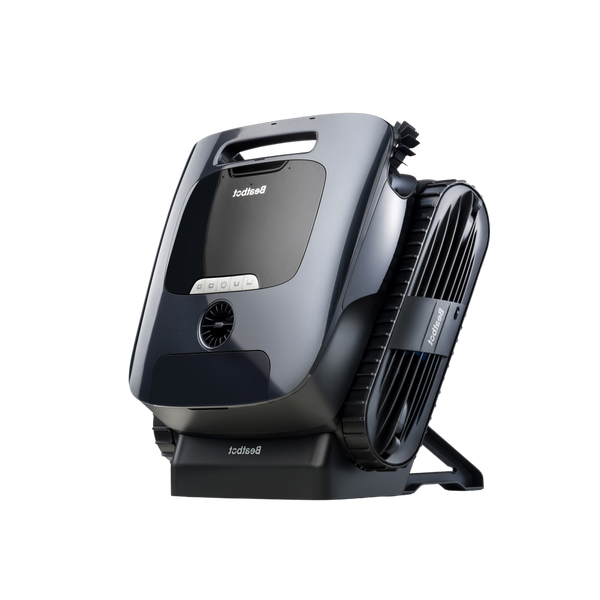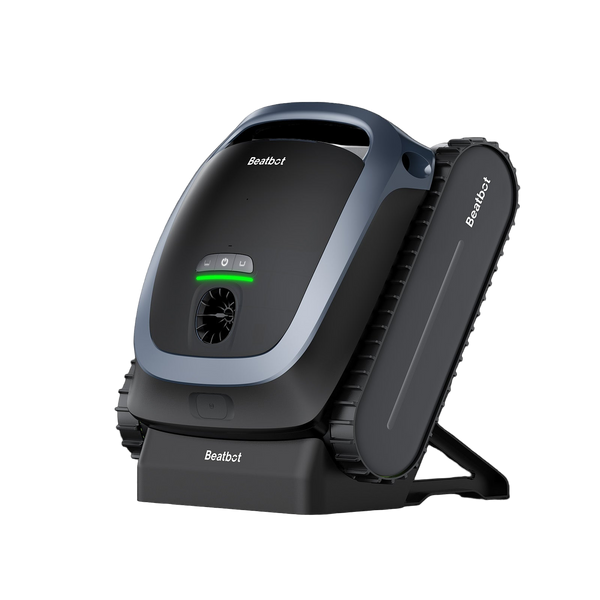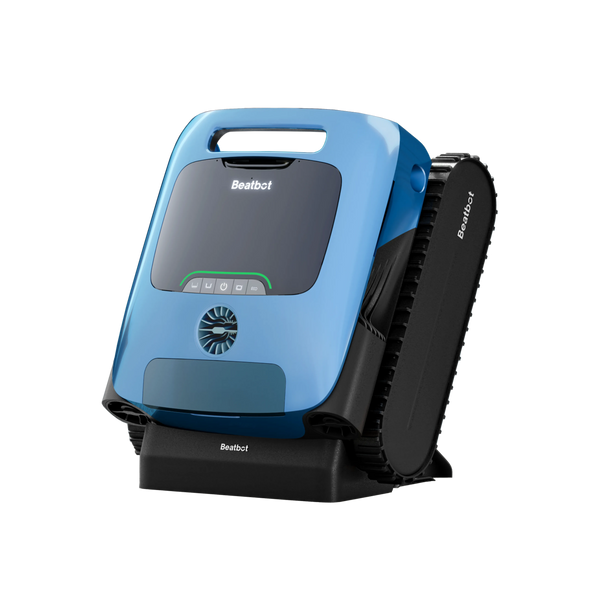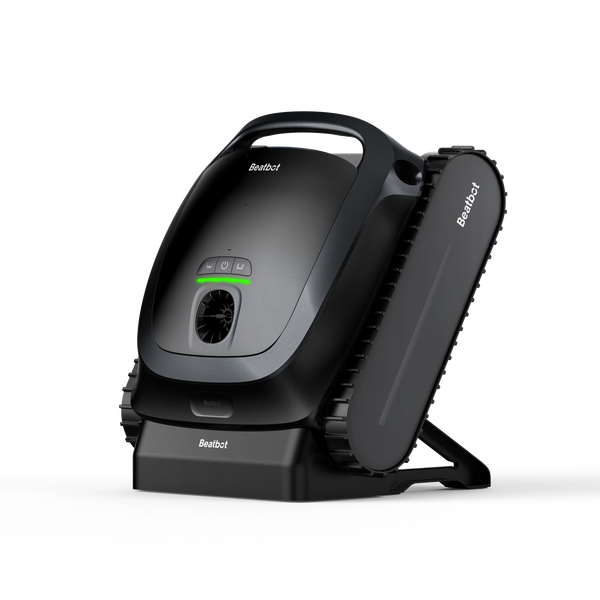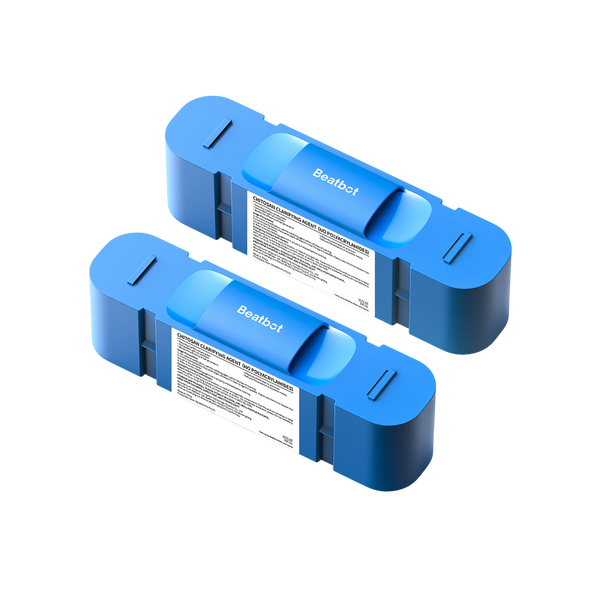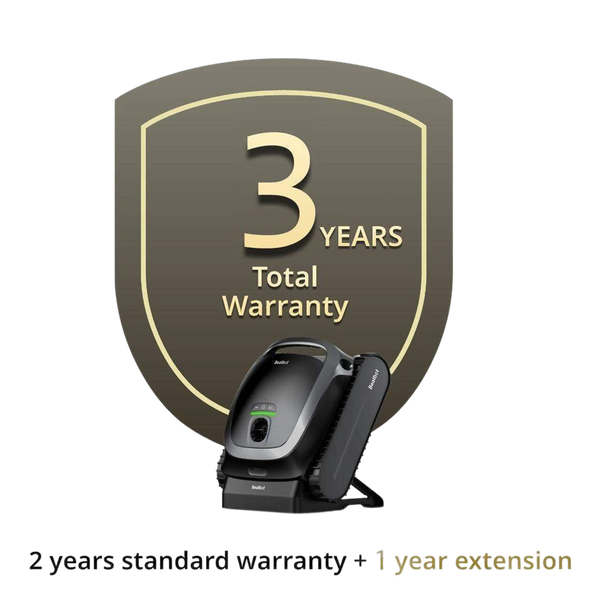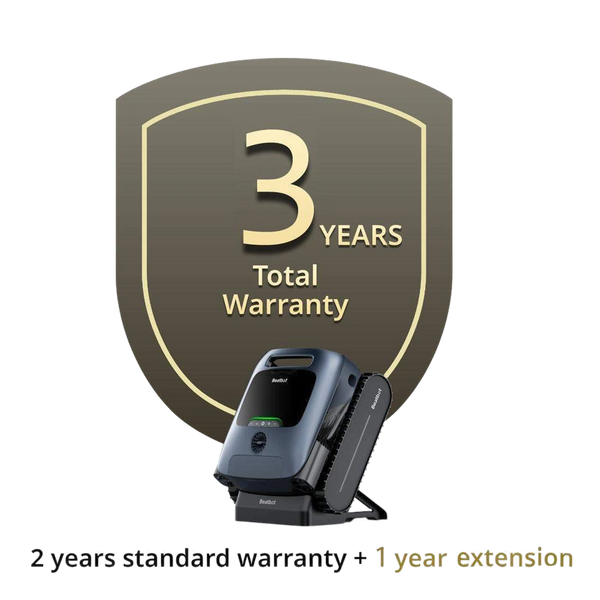Pool Bleach: Its Role in Disinfection, Algae Control, and Water Clarity
Having sparkling water is everyone's dream, however, achieving it requires a lot of effort, including frequent pool cleaning, constant adjustment of chemical balances, and adding chemicals. Among them, using bleach in your pool is an effective way to keep the water clear and transparent. If you are a newbie to pool, you may not know the role it plays in it. Don't worry, in this article, we will take you to understand how pool bleach ensures clean and healthy pool water, and tell you what you must pay attention to when using it.
Table of contents
What is pool bleach? Can I use it in my pool? :
Pool bleach is a powerful disinfectant that usually contains sodium hypochlorite and plays a vital role in maintaining the quality of pool water. It not only keeps the water clean, but also ensures that the pool water is safe and clear. It may sound a little scary at first, but as long as you handle it carefully and ensure safety and effectiveness, it will be a safe helper for your pool disinfection.
Types of Pool Chlorine: A Comprehensive Guide
When it comes to keeping your pool sparkling clean, the right type of chlorine can make all the difference. Here's a detailed look at the various forms available:
1. Chlorine Tablets and Sticks
- Usage : These are commonly found in both tablet and stick forms.
- Application : Place them into floating dispensers or automatic feeders for optimal results. Avoid those requiring water to run over them in order to dissolve; this can tempt one to put them in the skimmer basket, risking low pH water adversely affecting your pump system.
- Quality : Opt for high-quality varieties that dissolve evenly, maintaining their shape while gradually getting smaller, which is crucial if you're using a floating chlorinator.
2. Granular Chlorine
- Characteristics : Granular chlorine is a versatile and fast-dissolving option, usually applied directly to the pool water.
- Advantages : It's ideal for quick adjustments or shocking the pool due to its rapid action.
- Consideration : Be careful with direct applications, as uneven spreading can lead to bleaching or damage to pool surfaces.
3. Liquid Chlorine
- Form : Sold in liquid form, typically used for larger commercial pools because of its higher volume application.
- Ease of Use : It’s straightforward to use, with no need for dissolving, allowing for rapid and efficient chlorine dispersal.
- Storage : It requires careful storage as it is susceptible to losing effectiveness over time, especially when exposed to sunlight.
4. Automatic Chlorine Feeders
- Convenience : Popular among pool owners for simplicity and automation.
- Functionality : These feeders dispense precise chlorine amounts into the pool, offering tight control over chlorine levels, simplifying maintenance tasks.
Selecting the correct type of pool chlorine can ensure a healthy and hassle-free swimming environment. Evaluate your pool's specific needs and maintenance routine to make the most informed choice.

Why use bleach?
- Cost-effective: Compared to other chemical disinfectants, it is quite affordable and can be used as an alternative to expensive chlorine tablets. And unlike many chemicals that can only be found in pool specialty stores, household bleach can be easily purchased in grocery stores, which makes it popular with many pool owners.
- Effective disinfection: Bleach can produce free chlorine, which is an effective means of disinfection and sterilization. As long as you pay attention, you can ensure the safety of users. In addition, during use, bleach will not cause the formation of chloramines, which causes irritating odors.
- Ensure clear water: Although bleach does not directly improve the clarity of water by physical means, it can produce chlorine, thereby removing algae and other tiny particles that make the water cloudy.
How does bleach control algae?
As mentioned above, bleach contains sodium hypochlorite, which has a strong bactericidal effect. When this chemical is added to water, it creates an environment that is not conducive to the reproduction and growth of algae, thereby killing algae in the pool. In addition, it also has a certain effect on direct algae killing. For algae such as green algae that are not resistant to chemicals, bleach can have a devastating effect. However, if you want to solve all algae problems once and for all, you can't rely on bleach alone. If you want to achieve better results, you need to pay attention to the following points:
Balanced pH : Every pool owner knows the importance of balancing the pH of the pool water. If the pH is too high or too low, it may reduce the effectiveness of disinfectants and create a suitable living environment for algae. Therefore, it is crucial to check the pH regularly at least once a week and add pool acid or alkali as appropriate to keep it balanced.
External Factors : Everything grows in the sun, and the same is true for algae. Sufficient light is conducive to the rapid reproduction of algae. Therefore, it is necessary to invest in a pool cover. We recommend that whether your pool is experiencing an algae crisis or not, a pool cover is necessary (in some areas, installing a pool cover is also your obligation). In addition, warm temperatures will also accelerate the growth of algae, so in the summer, you need to frequently check the temperature of the pool to ensure that it is stable in a suitable range.
Understanding how chlorine interacts with environmental factors is also crucial. Chlorine is neutralized when it interacts with any contaminant and by sunlight. This means that when contaminants such as leaves, oils, and dirt enter your pool, they can consume chlorine, reducing its availability to fight algae and bacteria. Similarly, sunlight can cause chlorine to dissipate, diminishing its overall concentration in the water.
To maintain effective chlorine levels and ensure your pool remains clean, consider:
- Regular Cleaning : Skim and vacuum regularly to remove debris and contaminants that consume chlorine.
- Stabilizers : Utilizing chlorine stabilizers can help protect chlorine from being degraded by sunlight, extending its effectiveness.
By keeping these factors in mind and incorporating them into your pool maintenance routine, you'll be better equipped to manage chlorine levels, ensuring a clean and inviting swimming environment.
How Organic Material Build-Up Affects Chlorine Effectiveness in Pools
When organic materials accumulate in a swimming pool, they can significantly hamper the efficiency of chlorine.
Why Organic Matter Matters
- Demand on Chlorine : Organic debris such as leaves, sweat, and body oils increase the "chlorine demand," meaning more chlorine is needed to achieve proper sanitation.
- Chlorine Neutralization : These materials can consume chlorine more rapidly, decreasing its availability to combat harmful bacteria and algae.
- Poor Water Quality : With inadequate chlorine levels, the pool may become cloudy and unsafe for swimmers.
Solution: The Shock Treatment
To tackle extensive organic build-up, shocking the pool is necessary. This involves:
- High-Dose Chlorine Addition : Applying a concentrated dose of chlorine for a brief period.
- Total Kill-Off : The intense chlorine burst effectively eliminates bacteria and dissolves organic matter.
- Restoration of Balance : Post-shock, the pool's chlorine levels can return to normal, ensuring clean and safe water.
By implementing a regular maintenance schedule and promptly addressing any organic accumulation, you can maintain a sparkling, healthy pool environment.
Proper use of bleach: Things you need to pay attention to
How often to use bleach:
The chlorine content of the pool should be above 1ppm. We recommend that you check the pool water once a week. If the test result is lower than this value, you can consider adding bleach.
For optimal pool health, the chlorine level should ideally stay between 1.0 and 3.0 parts per million (ppm) . This range ensures that your pool remains safe and clean for swimmers. Monitoring these levels regularly helps maintain a balanced and healthy swimming environment.
Steps to Take if Chlorine Levels Aren't Maintained with a Floating Device
If you're struggling to maintain proper chlorine levels using a floating device, consider the following steps to ensure your pool stays clean and safe:
Evaluate Tablet Size : Begin by checking the size of chlorine tablets in use. If you're using one-inch tablets, they might not dissolve quickly enough to meet the demand. Consider switching to larger three-inch tablets that release chlorine over an extended period.
Inspect and Adjust the Device : Make sure the floating device is in good condition and not clogged. Adjust the size of the openings on the floater to control the rate at which the chlorine dissolves. This can provide more consistent chlorine distribution.
Assess Automatic Systems : If you have an automatic chlorine feeder, it may require adjustment. Check the settings to ensure it's dispensing the correct amount of chlorine, and increase the dosage if necessary.
Test Water Regularly : Keep a regular schedule for testing your pool’s chlorine levels. Use a reliable pool test kit to verify that you're hitting the recommended range, allowing you to make timely adjustments.
Consider Environmental Factors : High temperatures, heavy rainfall, or increased pool usage can affect chlorine levels. In such cases, you may need to temporarily boost the chlorine dosage to compensate.
By following these steps, you can better manage your pool’s chlorine levels and maintain a safe swimming environment.
Why Consistency Matters in Maintaining Chlorine Levels in Your Pool
Consistency in maintaining chlorine levels is crucial for several reasons. Firstly, regular monitoring of pH levels every two to three days is essential. The pH level directly impacts chlorine's ability to sanitize your pool effectively. If the pH is off, chlorine may not be as effective, leaving your pool vulnerable to bacteria and algae.
Chlorine does its job by interacting with contaminants, but this reaction can reduce its strength. Additionally, exposure to sunlight can neutralize chlorine, diminishing its effectiveness even further. For these reasons, maintaining the right chlorine levels is not just a matter of tossing in tablets occasionally; it requires a consistent approach.
If you're using a floating device for chlorine distribution, pay attention to the size of the tablets. If the current tablets aren’t enough, it might be necessary to switch to larger, three-inch tablets or adjust settings on an automatic chlorine feeder. Staying diligent with these tasks ensures that any deviations in chlorine levels are promptly identified and corrected.
In short, consistency allows for early detection of necessary adjustments, keeping your pool clean, safe, and enjoyable all season long.
Potential problems with bleach:
Although bleach will not harm you if it is handled correctly, you still need to consider these issues: First, bleach needs to be diluted. Before using, always dilute it to a 10% solution, otherwise it may damage the pool materials and irritate the eyes and hurt the skin. In addition, the surface of some pool materials may react chemically with bleach. Second, never mix bleach with other pool chemicals, otherwise it may produce toxic substances that endanger life safety. And, you need to store bleach properly in a cool and dry place, away from children and pets to prevent accidents.
How to Calculate the Chlorine Needed for Your Pool
Understanding the Chemistry
Maintaining the right chlorine level in your pool is crucial for keeping the water clean and safe. Calculating the amount of chlorine needed might seem challenging, but it's a straightforward process once you break it down.
Step 1: Determine Your Pool's Volume
First, you need to know the total volume of your pool in gallons. This is often seen as the trickiest step, but it can be simplified using online tools. Many pool supply websites offer calculators to help you quickly find this information.
Step 2: Use the Chlorine Formula
Once you have the pool's volume, you can apply a simple formula. To achieve 1 ppm (part per million) of chlorine in your pool, you need approximately 1 ounce of chlorine for every 75,000 gallons of water. Therefore, if you have 100 gallons, you'd need about 0.013 ounces of chlorine.
Tips for Accurate Chlorination
- Recheck Your Calculations : Always double-check your pool's volume and ensure you convert units correctly.
- Test Regularly : Use a pool testing kit to maintain the appropriate chlorine levels continuously.
- Adjust as Needed : Factors like heavy rain or frequent pool use may require adjustments in chlorine levels.
By following these steps, you can keep your pool water at a safe and clean level of chlorination efficiently.
What is the Process and Purpose of Shocking a Swimming Pool?
Purpose of Shocking a Pool
Shocking a swimming pool is an essential maintenance procedure designed to eliminate bacteria and organic matter that accumulate over time. Regular doses of chlorine might not suffice to keep your pool pristine, especially if there is a significant buildup of organic materials like leaves, dirt, or swimmer waste. To ensure crystal clear water and safeguard against harmful pathogens, shocking becomes necessary.
Process of Shocking Your Pool
Assess the Need: Before proceeding, check if your pool appears cloudy or smells strongly of chlorine – these are signs that it's time for a shock treatment. Consider shocking your pool if it's been a while or after heavy rainstorms.
Choose the Right Shock Treatment: Select a shock product suitable for your pool type. Some popular brands include Clorox Pool&Spa and DryTech. Ensure you have the correct amount according to your pool's volume.
-
Pre-treatment Preparations:
- Test the Water: Use a pool testing kit to determine existing chlorine levels and pH balance. This helps you understand the extent of treatment required.
- Balance pH Levels: Adjust the pH level to be between 7.2 and 7.6 for effective shocking.
-
Applying the Shock:
- Protect Yourself: Wear gloves and goggles to protect your skin and eyes during the process.
- Mix or Dissolve (if necessary): If your shock product requires it, dissolve the granules in a bucket of water before adding to the pool.
- Distribute the Shock: Evenly pour the shock treatment around the perimeter of the pool. Avoid directly pouring it into one spot.
-
Aftercare:
- Allow the Water to Settle: Wait at least 8 hours (or as specified by your product) before diving back in. During this time, the chemicals will neutralize bacteria and organic material.
- Re-test and Adjust: Once the waiting period is over, re-test the water to ensure it is safe and properly balanced.
Maintenance Routine
For optimal water health, perform a shock treatment every 1-2 weeks, especially during peak swimming seasons. Regular shocking complements your routine chlorination, ensuring your pool remains clean, clear, and inviting all summer long.
Understanding the Risks of Excessive Chlorine in Your Pool
Having too much chlorine in your pool can lead to a range of unpleasant and even harmful effects. Here are the key risks to be aware of:
Irritation to Eyes and Skin : High chlorine levels can cause red, itchy eyes and discomfort on the skin, often leading to a condition known as "swimmer's itch."
Respiratory Issues : A strong chlorine odor, despite common perception, isn't a sign of cleanliness but rather of chemical imbalance. This pungent smell can lead to respiratory problems, especially in children and those with asthma.
Potential Health Hazards : Prolonged exposure to high chlorine concentrations may result in headaches or dizziness. It's crucial to maintain a safe chlorine level to prevent these symptoms.
To keep your pool healthy and enjoyable, aim to maintain chlorine levels between 1.0 and 3.0 parts per million (ppm). Regular monitoring and proper management can help avoid the need for excessive chlorine and prevent these risks.
Relative Blogs
About the author
